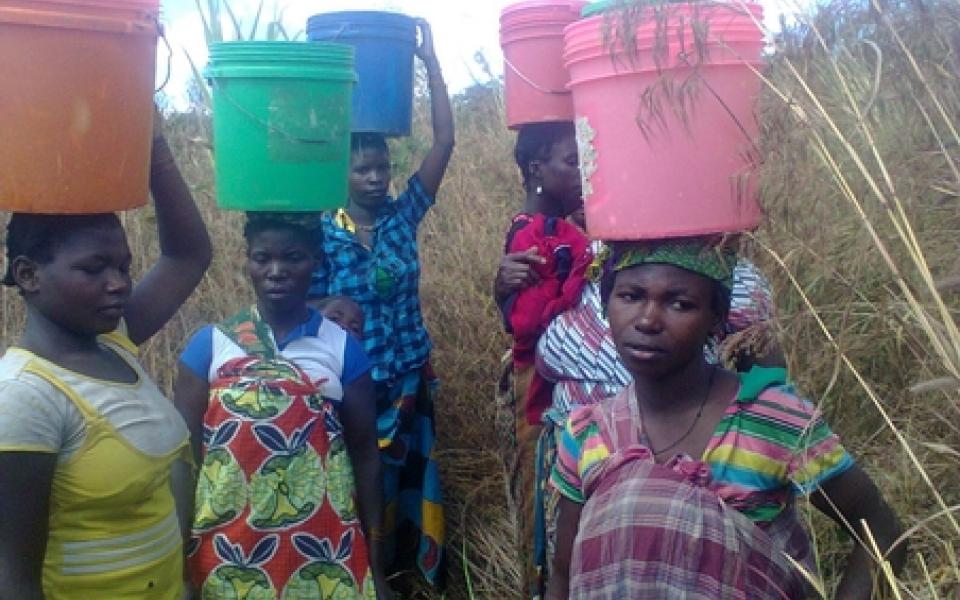
Missáo de Misericórdia Abrangente em Moçambique/ Outreaching Mercy Mission in Mozambique is one of URI's newest CCs, with tremendous challenges but matching heart. One of their pilot projects is a cultural kitchen, the initial stages of which are shared here. A previous account can be found here.
Working in rural areas with scattered communities, we face unique challenges and we feel the pain of the community when children cannot go to school, women cannot access hospitals, and access to clean water is scarce.
This last alone is the greatest factor delaying our work’s progress. Mbetazigne is an area with severe water shortage problems. Women have to walk long distances in search for water, which is quickly used up once it is found, and one trip is usually enough to exhaust them and halt our work.
The MIMAMO women's group's progress is very encouraging. When we came up with the idea of constructing a cultural kitchen they were quick to respond and start the work. Since we do not have an office, our discussions are taking place at the site the village headman offered us for the kitchen project. The vision of the cultural kitchen has attracted many women, including those from the city who are now asking to join us when we travel to the village to work with our fellow women on this project. This proposed multipurpose kitchen will have space for eating and learning cooking skills, but also have room for women’s discussions and kiosks for arts, crafts, and farm products.
The wider group includes farmers, teachers, small business owners, and tailors, and we are also looking to get involved in pottery and beekeeping. As these community members are both Christians and Muslims working together, the group has been encouraged to alternate prayers at the opening or closing of every meeting, and they alternate working days on Sundays and Fridays, the holy days of rest for their respective religions. It was agreed that on Sundays when Christians go to church, the Muslim women should continue working, while Christian women take the work on Fridays while Muslims go to mosque. Besides the practical benefits, they are glad that this work has brought them together and helped them resolve problems jointly regardless of religious affiliation.
The village headman, different faith leaders, and the community have been enthusiastic about the project, and are eager to see the fruits for their children, elderly, and sick. The women’s group is very appreciative also of the builders in the village who showed their support by volunteering to build the project’s structures and thatching the grass roofs, with the hope that we are able to get cement and iron sheeting for stronger structures in the future. As the burden of many of these basic problems fall on the women, they are particularly motivated to bring about progress, and are eager for future plans, such as inviting people from outside the country to demonstrate their experience. They are very proud of the CC’s vision, but more skills or trainings to offer our group from any sister cooperatives would be very welcome at this stage.
